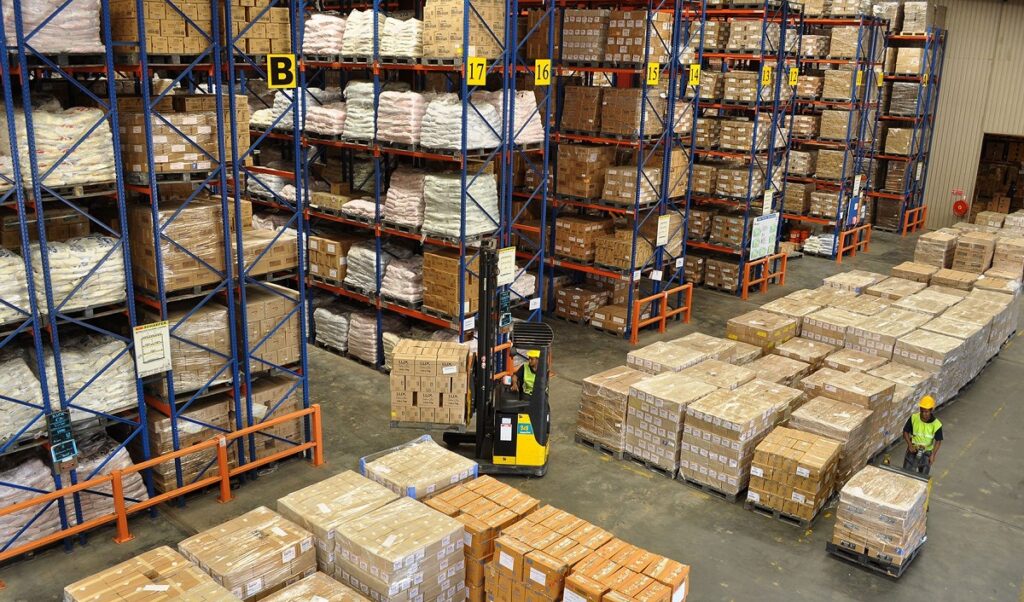
Bangalore, often dubbed the Silicon Valley of India, is not only known for its tech industry but also for its burgeoning logistics and warehousing sector. With its strategic location, robust infrastructure, and business-friendly environment, Bangalore has emerged as a critical hub for warehousing and distribution in South India. This article delves into the significance of warehouses in Bangalore, their benefits, and the factors driving their growth.
1. Bangalore’s Strategic Location and Infrastructure
Bangalore’s central location in South India makes it a key logistical node. Positioned well within reach of major cities like Chennai, Hyderabad, and Mumbai, it serves as a vital link in the supply chain. The city is well-connected by road, rail, and air, offering seamless transportation options for warehousing and distribution needs.
The city boasts an extensive network of national highways and expressways, including the Bangalore-Hyderabad Highway and the Bangalore-Chennai Highway. Additionally, the presence of the Kempegowda International Airport facilitates efficient air cargo handling, further enhancing the logistics infrastructure.
2. The Role of Warehouses in Bangalore’s Economy
Warehouses play a crucial role in Bangalore’s economy, contributing to various sectors, including retail, manufacturing, and e-commerce. With the rise of online shopping and the increasing demand for just-in-time delivery, warehouses have become essential for managing inventory, reducing lead times, and ensuring efficient distribution.
a. Support for E-commerce Growth
The e-commerce boom has significantly impacted the warehousing in Bangalore. As online retailers strive to offer faster delivery times and better customer service, the demand for well-located, high-capacity warehouses has surged. These warehouses are equipped with modern technologies like automated storage and retrieval systems, inventory management software, and advanced security measures to meet the needs of the growing e-commerce sector.
b. Manufacturing and Industrial Support
Bangalore’s industrial sector also benefits from an efficient warehousing system. Warehouses support manufacturing operations by storing raw materials, intermediate goods, and finished products. This ensures a smooth production process and helps manufacturers manage inventory levels more effectively.
3. Types of Warehouses in Bangalore
Bangalore offers a diverse range of warehouse types to cater to various business needs:
a. General Warehouses
These are traditional storage facilities used for holding a wide variety of goods. General warehouses in Bangalore are often strategically located near major transportation hubs to facilitate easy distribution.
b. Temperature-Controlled Warehouses
With the rise in demand for perishable goods, temperature-controlled warehouses have become increasingly important. These facilities maintain specific temperature ranges to ensure the quality and safety of temperature-sensitive products, such as pharmaceuticals and food items.
c. Distribution Centers
Distribution centers are specialized warehouses designed to handle the efficient movement of goods from manufacturers to retailers or end consumers. These centers are equipped with advanced sorting and handling technologies to streamline the distribution process.
d. Bonded Warehouses
Bonded warehouses in Bangalore are used for storing imported goods until the customs duties are paid. These facilities offer businesses the advantage of deferring duty payments and managing inventory more efficiently.
4. Key Factors Driving the Growth of Warehouses in Bangalore
Several factors are driving the expansion of the warehousing sector in Bangalore:
a. Urbanization and Population Growth
Bangalore’s rapid urbanization and population growth have increased the demand for goods and services, necessitating the development of more warehousing facilities. The expanding consumer base and the need for efficient supply chain management are major drivers of warehouse growth.
b. Infrastructure Development
Ongoing infrastructure projects, such as the development of new industrial parks and transportation corridors, are enhancing the logistics landscape in Bangalore. Improved infrastructure supports the establishment of modern, high-capacity warehouses and facilitates smoother distribution processes.
c. Technological Advancements
The integration of advanced technologies in warehousing operations, including automation, data analytics, and the Internet of Things (IoT), is revolutionizing the sector. These technologies improve operational efficiency, reduce costs, and enhance inventory management, making warehouses more attractive to businesses.
d. Government Policies and Incentives
The Indian government’s policies and incentives for the logistics and warehousing sector have further fueled growth. Initiatives like the National Logistics Policy and the implementation of the Goods and Services Tax (GST) have streamlined regulations and reduced barriers to setting up and operating warehouses.
5. Challenges Facing the Warehousing Sector
Despite its growth, the warehousing in Bangalore faces several challenges:
a. Real Estate Costs
The rising cost of real estate in Bangalore can be a significant barrier for businesses looking to establish or expand warehouse facilities. High land and construction costs may impact the overall profitability of warehousing operations.
b. Infrastructure Bottlenecks
While infrastructure development is ongoing, some areas may still face bottlenecks, such as traffic congestion and inadequate connectivity. Addressing these issues is crucial for ensuring smooth warehouse operations and efficient distribution.
c. Skilled Workforce
The warehousing sector requires a skilled workforce to manage advanced technologies and handle complex logistics operations. There is a need for continuous training and development programs to address skill gaps and ensure a capable workforce.
Conclusion
Warehouses in Bangalore are an integral part of the city’s logistics and supply chain ecosystem. With its strategic location, growing economy, and robust infrastructure, Bangalore continues to attract investments in the warehousing sector. As businesses increasingly rely on efficient warehousing solutions to meet consumer demands and streamline operations, the role of warehouses in Bangalore is set to become even more significant. By addressing challenges and leveraging technological advancements, the warehousing sector in Bangalore can continue to thrive and support the city’s economic growth.